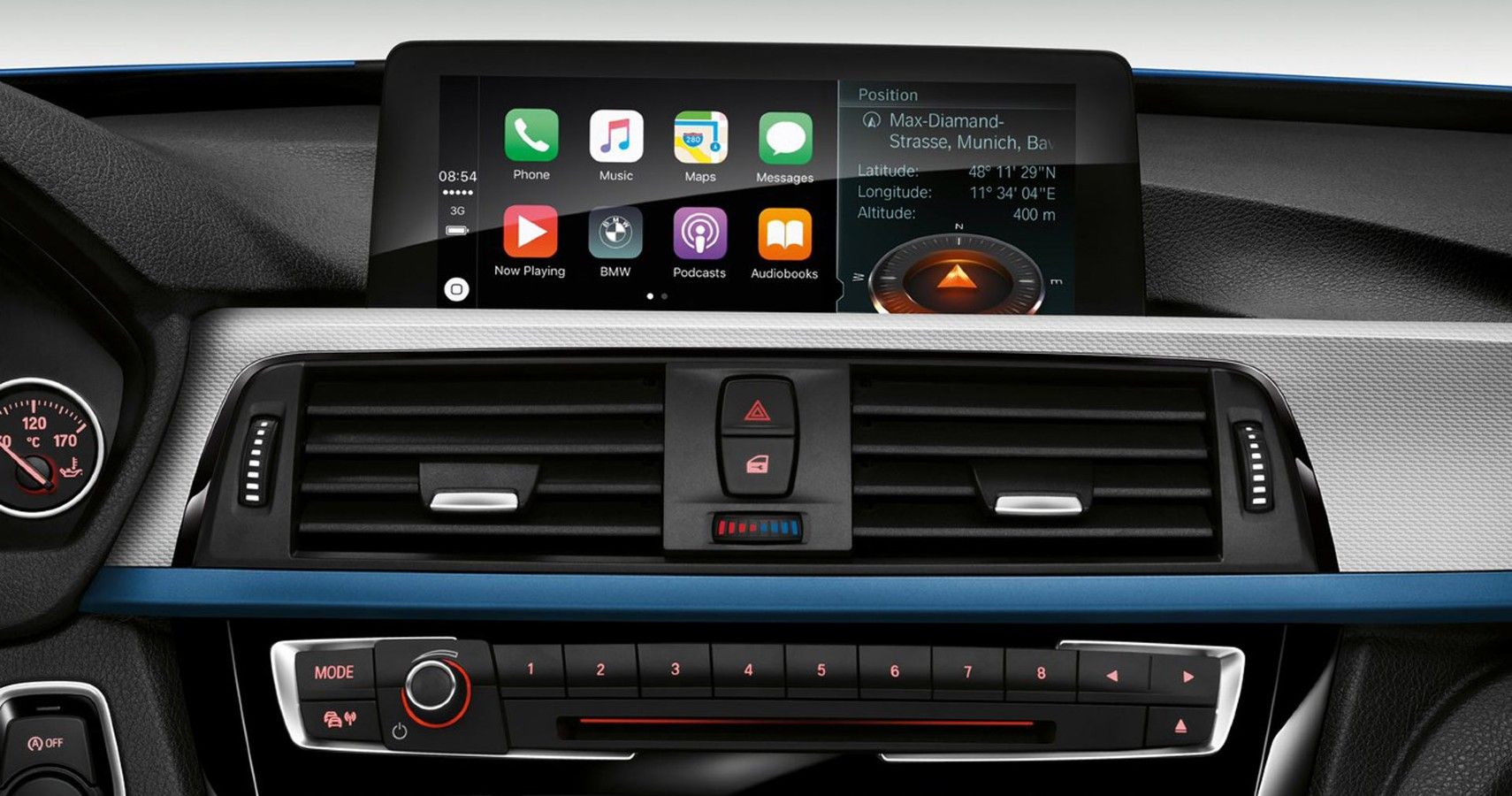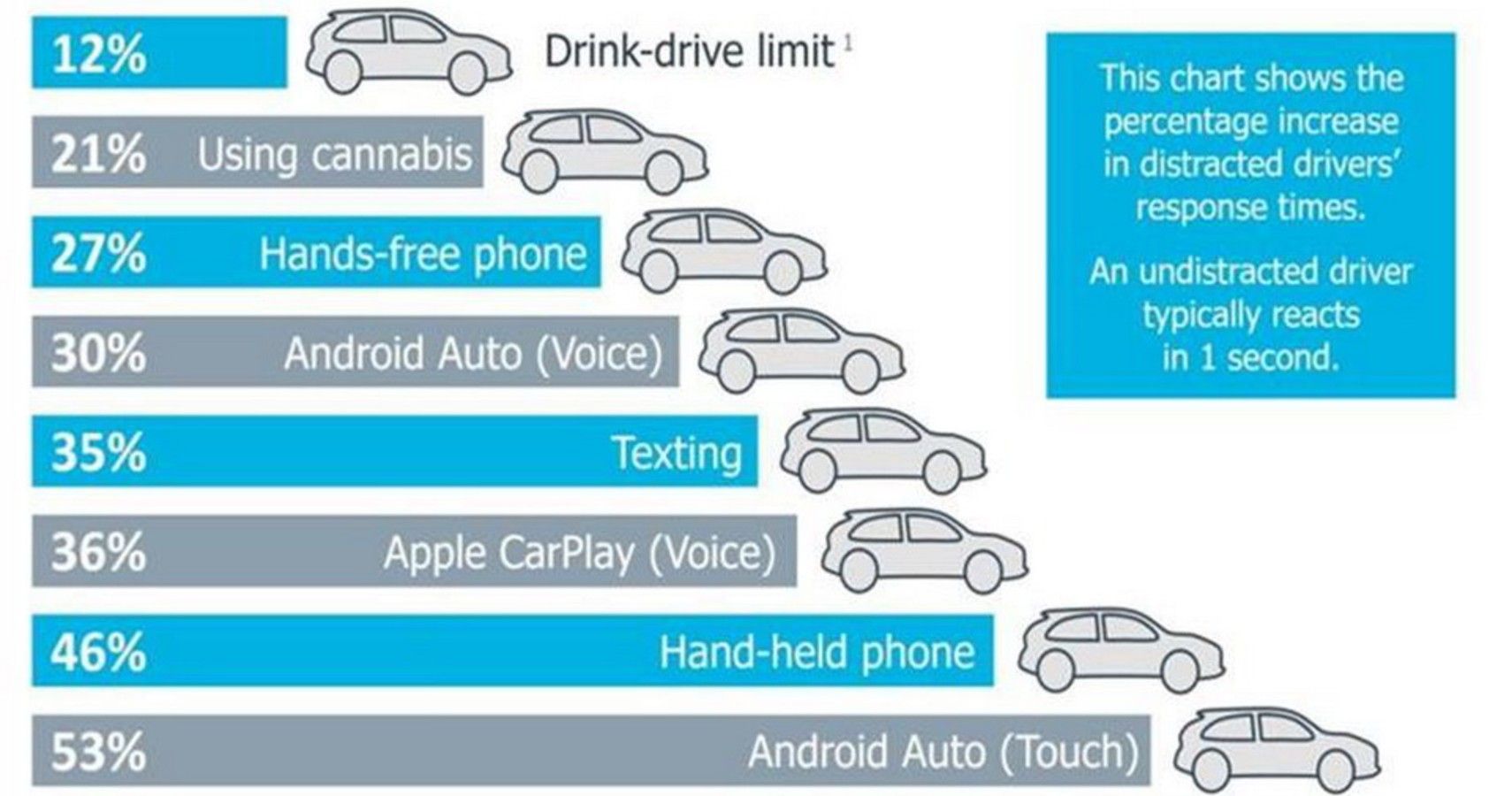It seems that not a day goes by when another controversial and usually surprising study comes to the fore to completely shatter some long-held belief. The latest study pertains to the ubiquitous infotainment systems in our cars, especially Apple’s CarPlay and Google’s Android Auto and their surprisingly detrimental effects on our driving.
Eye Opener
IAM Roadsmart is the UK’s largest independent road-safety charity, and was the entity that sponsored this study. In order to gauge the impact of infotainment systems on driving performance, the study conducted experiments focusing on driver reaction times, stopping distances, lane control and responses to outside stimuli under various conditions and with the driver utilizing no infotainment system features, voice-activated ones and traditional buttons and controls. These systems have been designed with safety and convenience in mind, but the results of the study cast doubt on how much they actually contribute to safer driving, and are nothing if not eye-opening, to say the least.
Reaction to Distraction
The study has found that infotainment usage impairs reaction times at highway speed much more than alcohol or cannabis usage would. Specifically, average stopping distances at highway speeds were found to increase between four and five car lengths. Also, drivers took their eyes off the road for as long as 16 seconds while driving (equivalent to a distance of more than 1600 feet at 70 mph), and using touch controls resulted in reaction times that were even worse than texting while driving.
Also, it found that driver distraction is responsible for fully 1/3rd of all road accidents in Europe. To put all of this into context, using Apple CarPlay or Android Auto while driving is likely the most egregious sort of distracted driving, and far worse than driving under the influence of alcohol (at the minimum limit in the UK), cannabis, while texting or holding a phone.
Eyes on the Road
Although the merits of the study in the US market may not be identical to those of the UK, it is worth bearing in mind that the safest way to operate any infotainment system is through the use of its voice-activated feature. Further studies should and hopefully will be conducted in the US to ensure the driving public does not assume a false sense of security while using the infotainment system in their cars.
Sources: IAM Roadsmart, Carscoops



